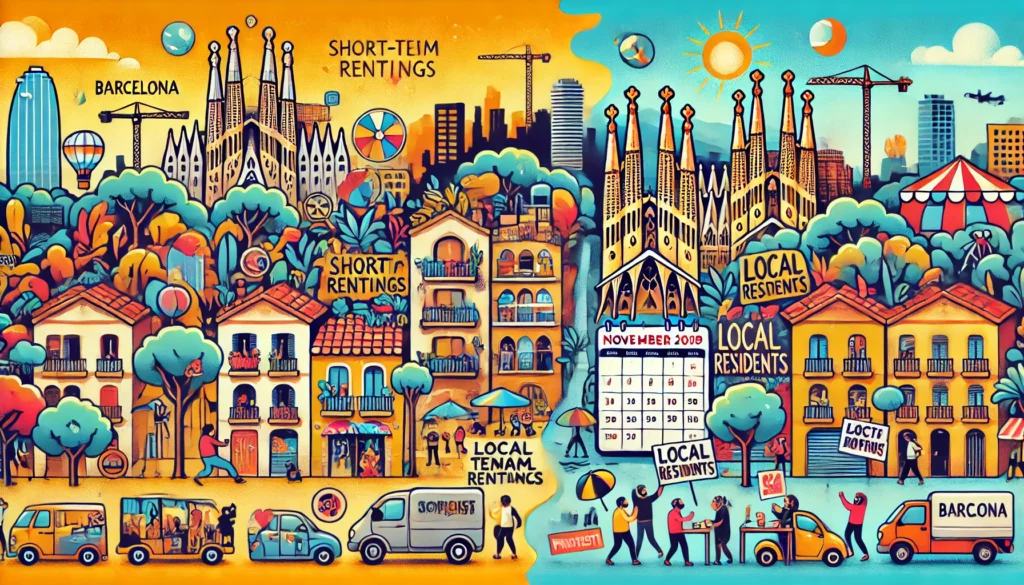On June 21, 2024, Barcelona’s current mayor, Jaume Collboni, announced a significant policy change aimed at addressing the city’s housing crisis. By November 2028, all licenses for the city’s 10,101 tourist apartments will be revoked, effectively transforming these properties into long-term residential homes.
This decision is part of a broader effort to increase housing availability for residents and tackle the rising cost of living in Barcelona. The mayor highlighted that housing prices in the city have increased by 68%, while salaries have only risen by 38% over the same period. By converting tourist apartments into residential units, the city aims to make more housing available to locals and stabilize the housing market.
Background: Barcelona’s Strict Regulations and Ada Colau’s Campaign
Barcelona has long been known for its strict regulations on short-term rentals. This approach was notably emphasized during the tenure of former mayor Ada Colau.
In May 2023, ahead of the municipal elections, Colau proposed a similar measure as part of her re-election campaign. She highlighted the negative impacts of tourism and included plans to revoke licenses for tourist flats and souvenir shops as part of her broader strategy to combat overtourism and its detrimental effects on the city.
Her campaign also focused on reducing the number of cruise ship passengers and opposing the expansion of El Prat airport to prevent further increases in tourist numbers.
Reaction from APARTUR
The Associació d’Apartaments Turístics de Barcelona (APARTUR) strongly opposes Mayor Jaume Collboni’s plan to eliminate all tourist apartments in Barcelona by November 2028. APARTUR’s position includes several key points:
- Ineffectiveness of the Measure: APARTUR argues that tourist apartments constitute only 0.77% of the city’s total housing stock. Therefore, eliminating them will not significantly impact the housing crisis or solve the problem of housing availability in Barcelona.
- Economic Impact: The association warns that the measure will lead to increased poverty and unemployment in the city. They believe that the removal of tourist apartments will negatively affect local businesses, such as cafes and small enterprises, which benefit from tourism.
- Proliferation of Illegal Rentals: APARTUR cautions that ending legal tourist rentals will result in a rise in illegal tourist accommodations, exacerbating the problem rather than solving it.
- Failure of Current Housing Policies: The association sees this plan as a demonstration of the failure of recent housing policies. They argue that better regulation, rather than outright bans, would be a more effective approach to managing the sector.
- Promotion of Sustainable Tourism: APARTUR maintains that tourist apartments support a sustainable model of tourism that integrates visitors into local neighborhoods and disperses the economic benefits of tourism among a broader base of small property owners and local businesses.
Reaction from the European Holiday Home Association (EHHA)
The European Holiday Home Association (EHHA) has also expressed concerns about the proposed ban. They argue that this measure is unjustified and ill-informed, noting that short-term rentals have been restricted to 10,000 since 2014, yet housing prices have continued to rise.
EHHA points out that less than 1% of homes in Barcelona are short-term rentals and that the ban will not significantly impact the housing crisis.
Furthermore, the European Commission has raised concerns that the Catalan decree might breach the EU’s Services Directive, arguing that the restrictions are not proportionate or suitable for addressing the housing shortage.
EHHA urges the city council to engage with the short-term rental industry to find a balanced solution.








